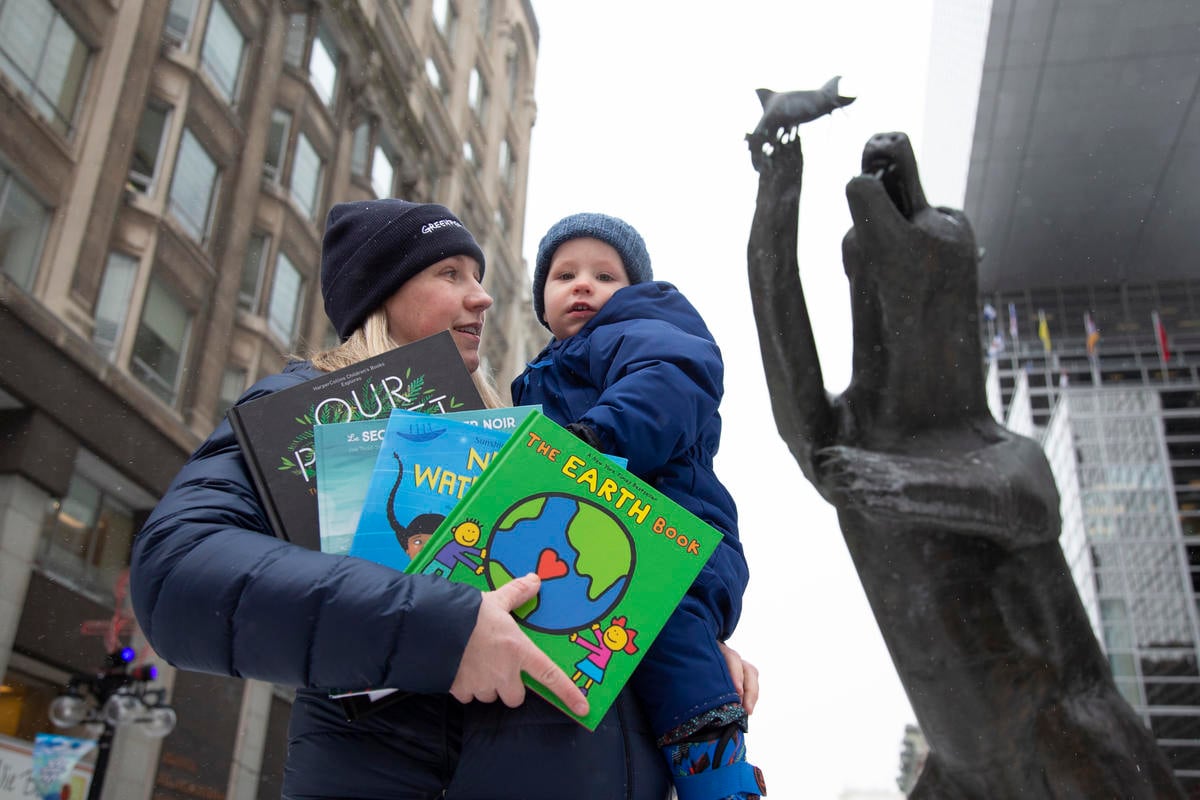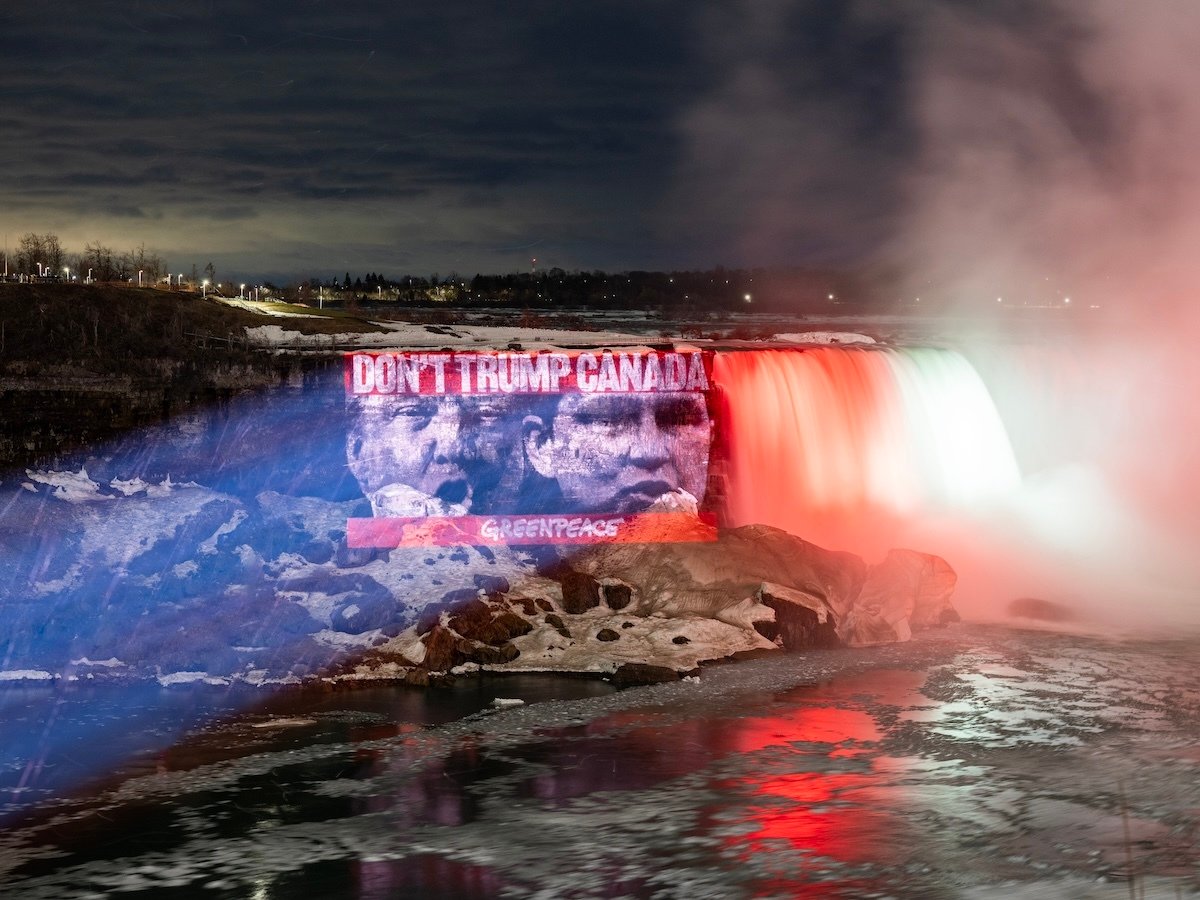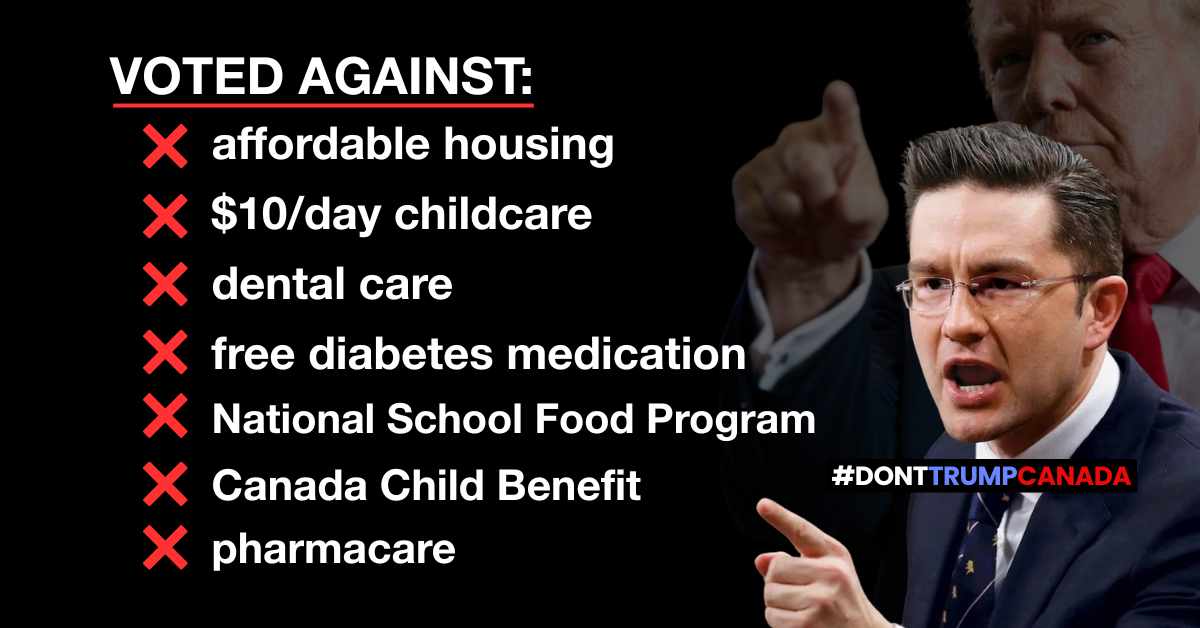Over the last few weeks, some of our supporters and followers have asked us why Greenpeace Canada has been vocal in support of the Black Lives Matter (#BLM) movement and how this ties to our core work around climate change and environmental protection. Simply put : we cannot achieve climate justice without securing social, economic and environmental justice. A root cause of these inequalities is systemic racism. And environmental racism is also a symptom of systemic racism. We cannot respect the ‘peace’ in Greenpeace nor achieve a green and just recovery, we cannot support Indigenous rights and truly achieve reconciliation and we cannot work in solidarity with low income, essential and migrant workers without connecting all these dots. In this blog we share with you why Greenpeace is engaged in the anti-racism conversation.
Why #BLM and not #Alllivesmatter ?
Of course, all lives do matter. Saying ”Black Lives Matter” doesn’t mean that other lives don’t matter. It acknowledges how Black adults and children are disproportionately affected by systemic racism. As present day events are demonstrating, this can translate into being targeted, attacked, and killed by police. The historic moment we are living also sheds light on systemic racism in Canada, where Indigneous, Black and other PoC communities face discrimination. Greenpeace believes that to be silent in the face of injustice, is to be complicit of that injustice. We will speak up and say, “Black Lives Matter”. We are in solidarity with our allies, part of the movement for Black Lives, demanding an end to the senseless and unlawful killings of Black people, accountability for the victims of police and other forms of state sanctioned violence. Black Lives Matters means that Black people in the United States and beyond have the right to live without fear of violence. And sadly, despite the tragic loss of George Floyd’s life and the uprising that has followed, we continue to witness reports of deaths — that could and should have been avoided — of BIPOC folks in Canada and in the US at the hands of the police over the last few weeks.
What about non racist white folks who support #BLM ? Aren’t you excluding them ?
We have seen the word #reverseracism surge as a trend, appearing in defense of white people. But again let’s demystify what underlies this concept. Racial justice is foremost about becoming conscious of —- and challenging —- unequal power dynamics that lead to a specific group of people being discriminated against. It’s also about stepping up and daring to speak out about the privilege held by the few. Racism works on an individual and a systemic level. For example, centuries of oppression in the US have led to Black people being disproportionately affected by the consequences of historical violence and present day power structures that are built on those same principles of racism and violence. And this doesn’t only happen in the US. If it did, there wouldn’t have been protests around the globe, including here. Actually naming racism isn’t reverse racism. That’s a common misconception. This video does a brilliant job at explaining this.
Why are we supporting the ‘Defund the police’ call from civil groups ?
First, it’s because we are supporting and following the guidance of the Movement for Black Lives. Also, police brutality is a reality across Canada. Not only are BIPOC communities at a higher risk of enduring violence, but expert analysis also shows policing is not the most effective way to intervene in delicate situations. When fear or power takes over, police officers can resort to guns in the face of unarmed people, which as we’ve seen again and again, can be fatal. That is why defunding the police, while investing in community programs, mental health supports and social services is important.
How does this tie to our work to #JustRecovery ?
In addition to defunding the police and investing in community programs, making public transit free is one of three important anti-racist policies that must be part of the COVID-19 economic recovery plans. Why ? You can read more about this here. In fact, Greenpeace’s work is to challenge systems of power that destroy the environment and place a disproportionate burden on marginalized communities. So we cannot #buildbackbetter when marginalized communities, so often communities of color, keep suffering. In other words, Greenpeace’s work is deeply interconnected with the success of those working for racial, social, and gender justice. We believe that the success of our work is fundamentally interconnected with the struggle for racial justice. The current health and economic crises are exposing systemic social and economic inequalities related to gender, racialized communities, migrants, and more. The advice of marginalized communities must be sought in designing a recovery plan that meets their needs and reduces systemic social inequalities. This is one of the series of recommendations we officially made to policy makers at a federal level.
Can you give me examples of how racial and environmental justice are connected ?
On one hand, in June, we celebrated National Indigenous Peoples Day in Canada. It doesn’t take much to remember and realize that up until this very day, Indigenous communities are among the most vulnerable when it comes to health, economy and prosperity. Here’s a great blog from Carole Brazeau, an Anishnabe great-grandmother and her daughter, Jennifer, a grandmother herself, where they explain how their daily lives are embedded with deeply felt and lived racism, how it affects their future and how they live with colonialism and capitalism, which both contribute to today’s systemic racism and climate change. On the other hand, Greenpeace’s vision intersects with the #BLM’s vision. Knowing that these visions are interconnected is already recognizing that a more peaceful, fairer and greener world cannot exist without social justice as a basis. From fossil fuel divestment to clean air and water, the vision of the Black Lives Matter movement is full of solutions for people and the planet. Our colleague D.Barre explains how there are 3 ways racial and environmental justice are connected.
So is racism destroying the environment ?
Yes it is, and we fight it not just because of that, but because it destroys human lives too. We need to face up to the fact that systemic racial injustices are profoundly ingrained in Canadian society. Again: we stand up against racial injustice and police brutality that targets Black and Indigenous communities and other communities of colour, because it is inherently wrong and inhumane. Enough is enough.
Systemic racism doesn’t only destroy the environment. It destroys lives.





Discussion
what a great arugment!